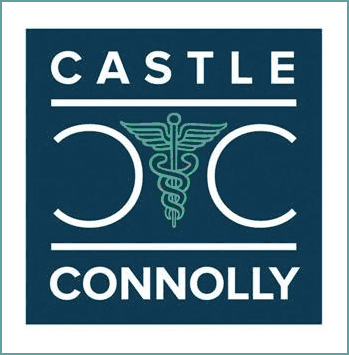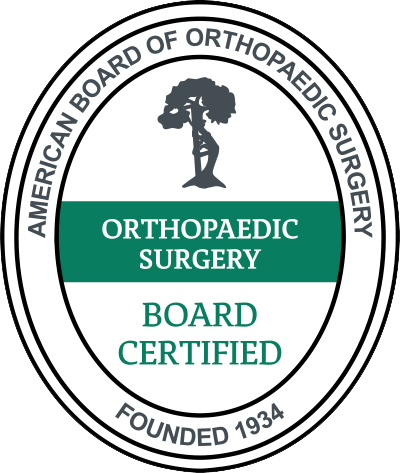Many people think of a bunion as a bump or a growth, on their big toe, as their shoes get tighter and more painful to wear, with time. Really a bunion is caused by deformity around the big toe. The big toe gradually angles outward towards the second toe, while the next bone back, the first metatarsal, starts angling inward and away from the 2nd metatarsal. So, what seems like a growth that is enlarging is really a splaying or spreading out of the front of the foot. The more accurate medical term for the deformity is Hallux Valgus. Hallux refers to the big toe, and valgus refers to the outward angulation of the toe.
Hallux valgus can not only cause a prominence that rubs against the shoe and causes pain, but it also can affect the surrounding toes and alter how the foot meets the ground. With the deformity, pressure is often transferred to the second and sometimes third toe. The second toe is often overpowered and can become a progressively painful hammer toe.
There are a number of factors that lead to the formation of the hallux valgus deformity. Genetics plays a part, but shoe wear plays an equally large part. Although, even shoeless societies in the desert are known to develop these deformities, they are far more common where restrictive shoe wear is worn. It is thought that women have a higher rate of hallux valgus, as they tend to favor tighter shoes with higher heals which tend to crowd the toes together. Whatever starts the deformity, they tend to progress as the muscles and tendons that move the joints of the toes slip out of their original positions and becoming deforming forces. Nobody goes to bed with a bunion or a hammer toe and wakes up with straight toes.
The goal of treatment for hallux valgus and for hammer toes is to relieve pain and improve function. Many of these deformities are painless and therefore do not need immediate treatment. Shoes that are wider and roomier in the front and lower in the heel will often relieve painful pressure. Often expensive custom orthotics are prescribed. These will not reverse the deformity and only occasionally relieve pain in patients who have an especially flat foot. If a trial of orthotics is considered, I often recommend an inexpensive but good quality over the counter model.
When shoe modification fails to relieve pain, I will often recommend a bunionectomy. A bunionectomy is really a deformity correction and requires both bone cuts and soft tissue balancing. In planning a case, care must be taken not to perform procedures that are unnecessary, however, it is equally important to perform all of the necessary procedures in order to get good balance to the foot. The alignment of the entire leg and the patients other orthopedic and medical issues need to be carefully considered.
Although, there are a lot of people in the community who do bunion and hammer toe surgery, Lapidus Bunionectomy procedures should never be taken lightly, as a poorly performed operation can lead to ongoing pain and difficulty walking, which can last a lifetime. Not every foot and ankle specialist has been equally trained. Choose your surgeon wisely, and make sure that he or she has the training and expertise necessary to give you the relief that you need.
OrthoConnecticut is the region’s premier, multi-specialty orthopedic practice, helping patients regain mobility, lead active lives, and attain optimal well-being. It is the combined practice of Danbury Orthopedics, New Milford Orthopedics, Coastal Orthopedics and CT Pain Care. 27 fellowship-trained, board-certified physicians offer patient care at 9 offices in Danbury, Darien, Litchfield, New Milford, Norwalk, Ridgefield, Sharon, Southbury and Westport. The practice’s urgent care service, OrthoCare Express, is open 7 days a week for emergencies and is available in Danbury, New Milford and Norwalk. To make an appointment with any of the practice’s specialists, or to learn more visit myorthoct.com or call 1.833.ORTHOCT (1.833.678.4628).



